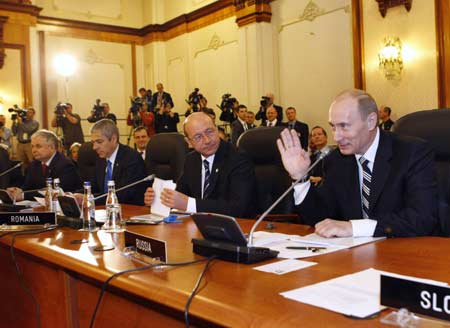Russia and NATO failed to make headway in overcoming gaps on thorny issues at their first ever Council Summit on Friday, despite a transit deal was forged.

Russian President Vladimir Putin (R) speaks during the meeting of the NATO-Russia Council in the Palace of the Parliament at the NATO Summit in Bucharest April 4, 2008.
The two traditional foes have had long sharply disagreed on substantial matters such as the military alliance eastward expansion, Kosovo and a Cold War-time arms control treaty.
A U.S. plan of deploying missile defense system, which was endorsed by a NATO summit on Thursday, is another concern of Russia, which has regarded it threat to its security.
Ever since NATO's first eastward expansion in 1999, when Poland, the Czech Republic and Hungary joined, Russia vehemently opposed to the move.
Turning a deaf ear to Moscow's opposition, NATO enlarged several times to 26 nations before taking formally Croatia and Albania as new members on Thursday. Macedonia can join as soon as its name dispute with Greece is settled.